
Here you can read more about Nature’s a Hoot, and access resources, photos and extra insights from our ninth episode where we chat about the formidable species of falcons we have here in the UK, including an exclusive interview with Dr Georgia Jones about her fascinating research with Kestrels.
Listen now to the Nature’s a Hoot ninth episode British Falcons. Don’t forget to subscribe!
Tom and Hannah share how wonderful (but busy!) it is to have visitors back at the Hawk Conservancy Trust after reopening in April. The whirlwind changeable weather in April has us worrying about our local wildlife, however Hannah shares a funny story of a recent wildlife rescue… listen to find out more!
In the UK we have four species of falcon, the Peregrine Falcon, Kestrel, Merlin and Hobby. Very rarely we also see Gyr Falcons in northern Scotland, one of the biggest falcon species in the world. Falcons are incredible to watch, and a regular feature in our flying displays at the Trust, and we also work to conserve Kestrels in the wild, as well as admitting all four species to our National Bird of Prey Hospital™.
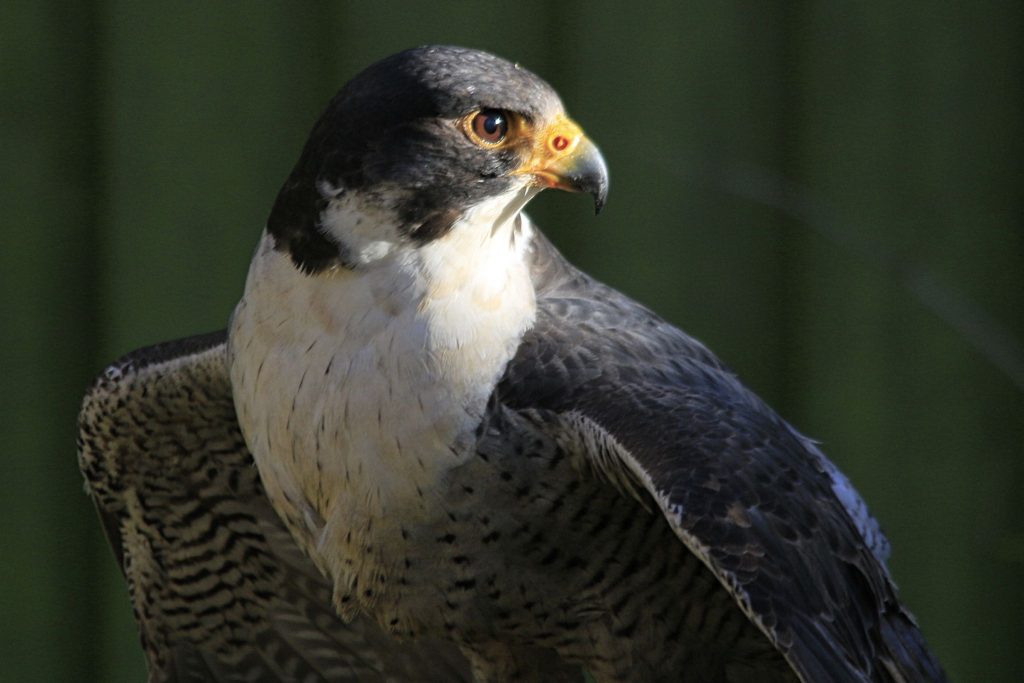
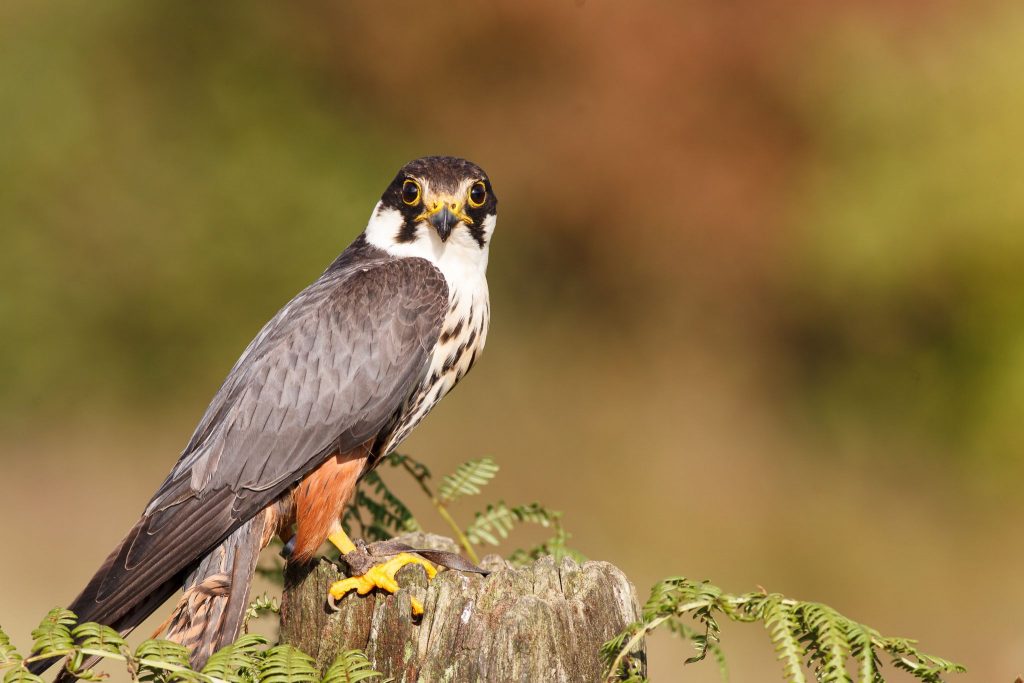
Tom and Hannah chat about the wonderful adaptations of the different falcon species we have, did you know that a Peregrine Falcon’s top speed is over 200 miles per hour! Hobbies begin to arrive back in the UK to breed in April, so if you are keen to spot a Hobby, our best tip is to keep your eyes peeled over water where they feast on flying insects. A good time to spot them is at dawn and dusk, as it is thought that the cooler temperatures mean their prey is more sluggish and easier to catch.
Most species of falcons in the UK suffered from significant population declines due to the use of organochlorine pesticides and persecution, many have recovered, however the Merlin is still classified as Red-listed in the UK. We talk in depth about how this affected falcons, and what the outlook is for falcons now.
Not forgetting the wonderful Kestrel, which is the focus of our bird of prey survey work in the UK and for which we provide nest boxes across southern England. Recent research has found that rodenticides are thought to impact Kestrel populations, to find out more about this research, read the paper here. Our guest Dr Georgia Jones is also researching Kestrels, more on that later… Find out more about our conservation and research work with Kestrels here.
In this month’s Matter of Fact Challenge, where we ask you, our wonderful listeners to vote for the best fact in the chosen category from Tom or Hannah, we battle out ‘Bravest Animal’… This month you can choose between Hannah’s Blue Sheep teetering on the edges of cliffs in the high Himalayas or Tom’s Cleaner Wrasse cleaning the mouths of sharks and eels! Our challenge choices will be up on Twitter and Instagram as a poll, and it’s up to you to decide the victor so head over to cast your vote.
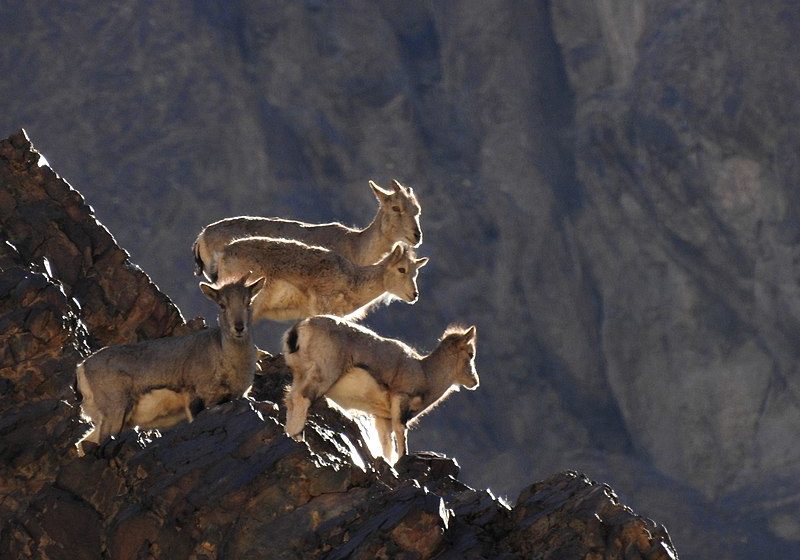
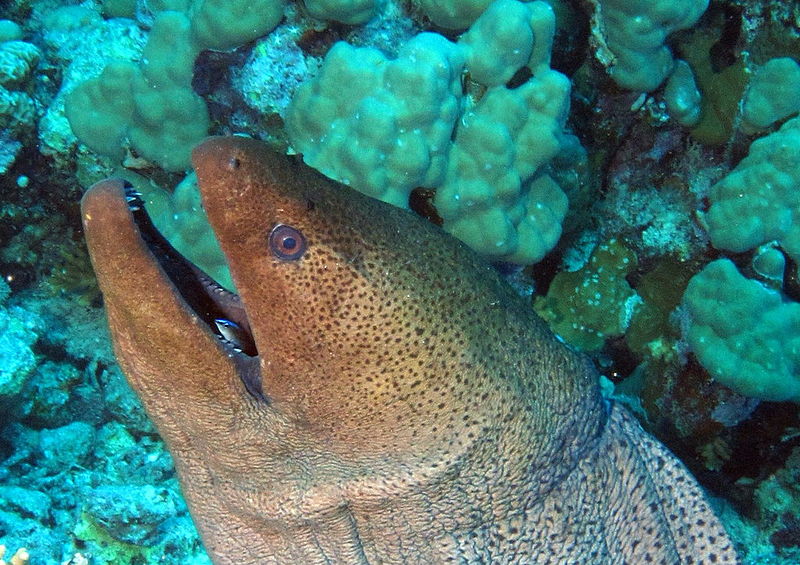 Left: Blue Sheep in the Himalayan Mountains, and right: a Cleaner Wrasse inside a Moray Eel’s mouth
Left: Blue Sheep in the Himalayan Mountains, and right: a Cleaner Wrasse inside a Moray Eel’s mouthIt was absolutely fascinating to hear about Dr Georgia Jones’ research. Georgia was the 2020 Marion Paviour award winner, for her work investigating Kestrel diets in the UK. Georgia gives us a great introduction to her work, and explains how ‘stable isotope analysis’ works, and Tom nails it with a brilliant analogy! Listen to find out more, or check out this blog for more information on Georgia’s work.
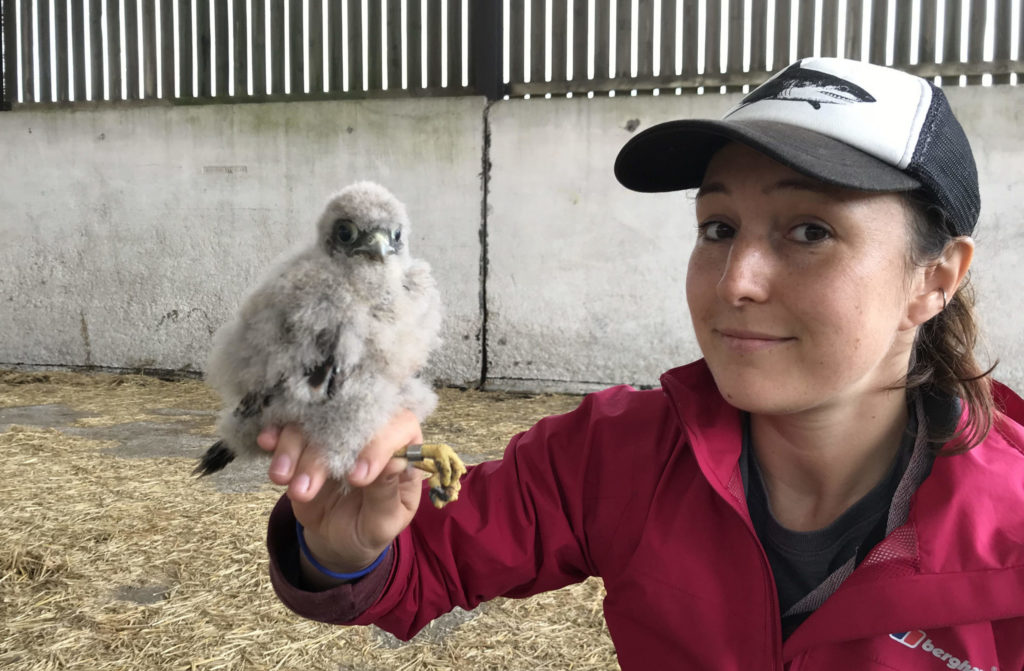
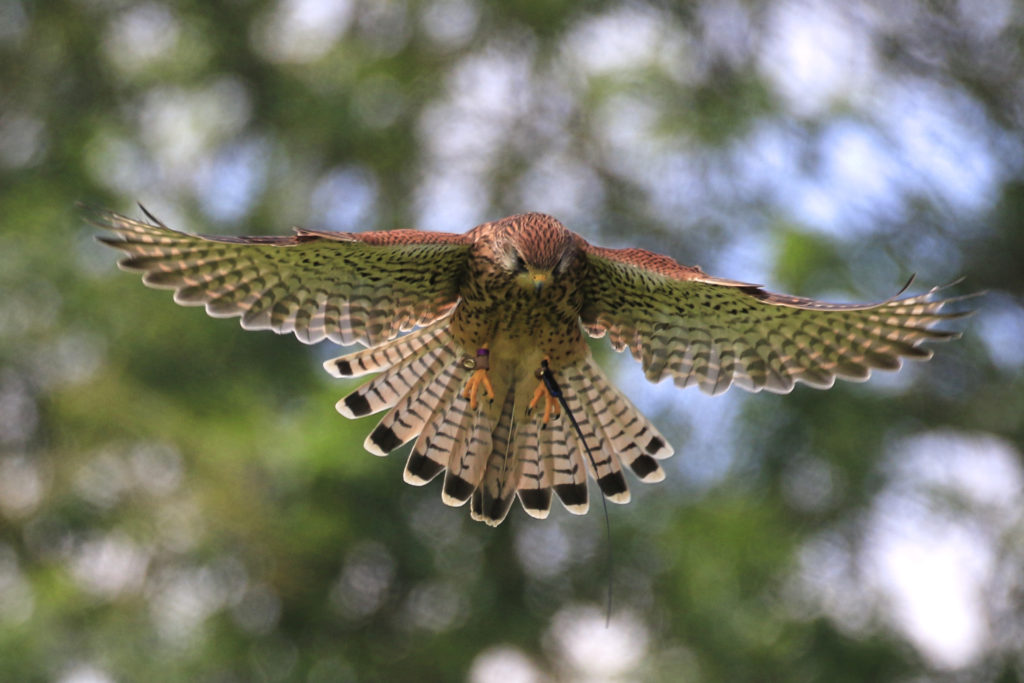 Left: Dr Georgia Jones with a kestrel chick, and right: our Kestrel, Scout, at the Trust
Left: Dr Georgia Jones with a kestrel chick, and right: our Kestrel, Scout, at the TrustAs the weather warms up and the grass begins to grow, our top tip is to leave it be! Try a No Mow May! Lawns provide amazing habitat for all sorts and letting the flowers peek through helps our struggling pollinators. What could be easier than leaving the mower in the shed for an entire month!?
To find out more about our podcast, and listen to British Falcons and other episodes, visit our website.